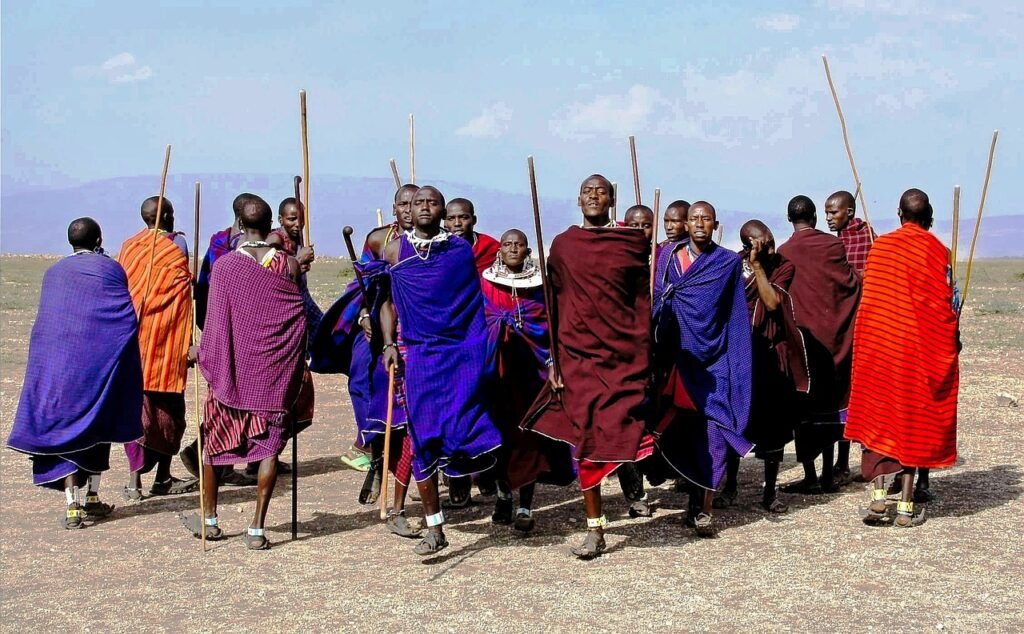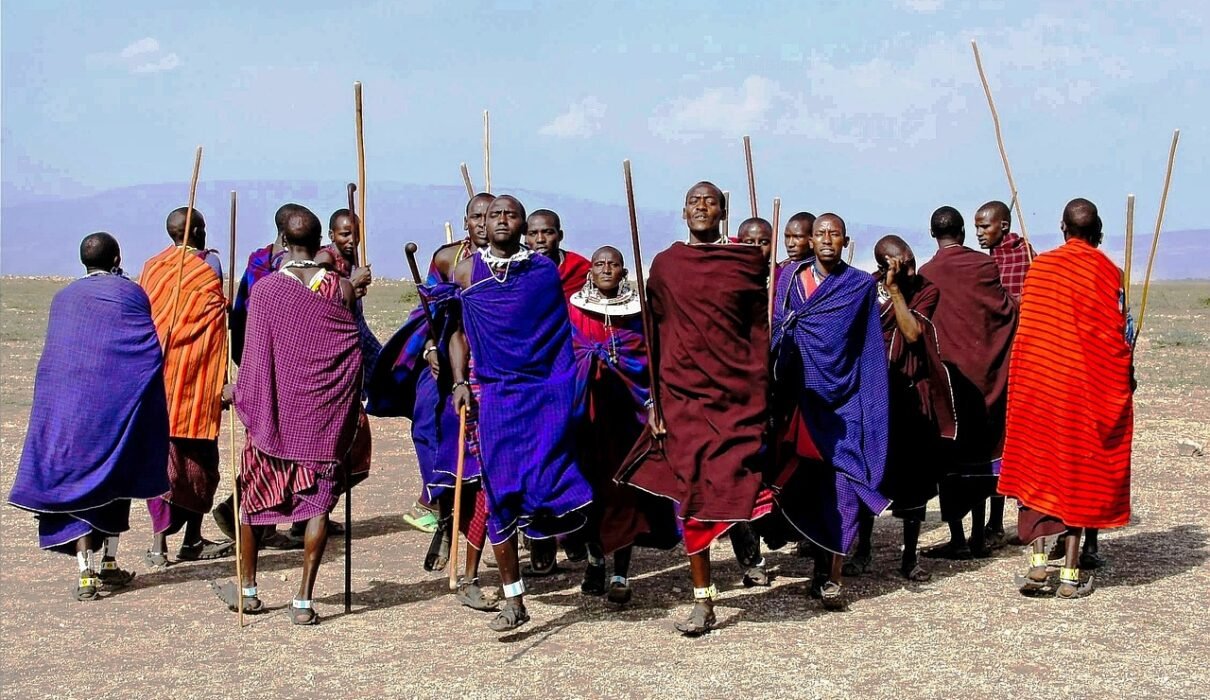Tanzania is renowned for its wildlife safaris, but it is also home to a wealth of cultural diversity. Tanzania cultural tourism allows visitors to experience the rich traditions, customs, and heritage of its many ethnic groups. From visiting Maasai villages to exploring vibrant local markets, cultural tourism in Tanzania provides a deeper connection with the people and history of this East African nation. In this post, we’ll delve into the key experiences and activities that make Tanzania cultural tourism a must for travelers seeking more than just wildlife.

1. Why Choose Tanzania Cultural Tourism?
Choosing Tanzania cultural tourism offers a unique opportunity to go beyond the well-known wildlife safaris. It gives travelers the chance to connect with local communities, learn about their customs, and engage with their traditions. These experiences enrich your understanding of Tanzania and provide meaningful insights into the daily lives of its people.
- Experience traditional lifestyles: Meet various ethnic groups, including the Maasai, Chaga, and Hadzabe.
- Support local communities: Engage in sustainable tourism that benefits local economies.
- Learn from local experts: Get guided tours from people who live in the regions you visit.
Learn more about the benefits of cultural tourism.
2. Visiting Maasai Villages: A Highlight of Tanzania Cultural Tourism
One of the most popular activities in Tanzania cultural tourism is visiting Maasai villages. The Maasai are a semi-nomadic tribe known for their colorful clothing, warrior traditions, and cattle herding. Visiting a Maasai village allows you to observe their way of life, participate in traditional dances, and learn about their customs and values.
What to Expect in a Maasai Village
- Cultural interaction: Engage with Maasai elders and warriors, who will share stories about their history and daily lives.
- Traditional dances: Watch the Maasai perform their famous jumping dance, known as the adumu.
- Craft making: Many villages offer the chance to purchase handmade jewelry, clothing, and crafts, directly supporting the community.
Discover more about Maasai culture and traditions.
3. The Hadzabe Tribe: Meet Tanzania’s Last Hunter-Gatherers
The Hadzabe tribe, located near Lake Eyasi, is one of Tanzania’s most fascinating ethnic groups. They are among the last true hunter-gatherers in Africa, living a lifestyle largely unchanged for thousands of years. A visit to the Hadzabe offers an incredible insight into their way of life, as you can join them on hunts and gather wild plants.
Key Highlights of Visiting the Hadzabe
- Hunting experience: Join Hadzabe men on a traditional bow-and-arrow hunt, a practice passed down through generations.
- Gathering and foraging: Learn how the Hadzabe collect roots, fruits, and honey from the surrounding forests.
- Language and communication: Hear the unique click language that the Hadzabe use for communication.
Read about the Hadzabe tribe and their way of life.
4. Coffee Tours with the Chaga People
The Chaga people, who live near the foothills of Mount Kilimanjaro, are famous for their coffee farms. Coffee tours are an excellent way to engage with Tanzania cultural tourism, as you can visit local Chaga villages and see how coffee is cultivated, processed, and brewed.
What You’ll Experience on a Coffee Tour
- Traditional coffee-making: Participate in the full process of coffee production, from harvesting beans to brewing a fresh cup of Tanzanian coffee.
- Chaga history: Learn about the Chaga’s deep-rooted traditions and how they have adapted to modern life while maintaining their heritage.
- Scenic views: Enjoy breathtaking views of Mount Kilimanjaro and the lush farmlands of the Chaga region.
Find out more about coffee tours in Tanzania.
5. Exploring Local Markets: A Vibrant Part of Tanzania Cultural Tourism
Local markets are the heartbeat of Tanzanian towns and cities. Exploring a local market is one of the most engaging optional activities during a Tanzania cultural tourism experience. From Arusha to Dar es Salaam, local markets are full of fresh produce, spices, fabrics, and handmade crafts.
Highlights of Visiting a Tanzanian Market
- Fresh produce: Taste seasonal fruits, vegetables, and Tanzanian staples like ugali and chapati.
- Handmade crafts: Purchase traditional fabrics like kanga and kitenge, or find intricately carved wooden sculptures.
- Spice shopping: Discover the range of spices grown in Tanzania, from cloves to cinnamon, and take home souvenirs that reflect the flavors of the region.
Learn about the significance of Tanzanian markets.
6. Participating in Traditional Dances and Music
Music and dance are integral parts of Tanzanian culture. Participating in or watching traditional dances is another highlight of Tanzania cultural tourism. Many tribes use dance and music for storytelling, celebrations, and religious ceremonies. The Ngoma dance, for example, is one of the most famous performances in Tanzania, blending rhythm and movement.
Experience Traditional Tanzanian Dance
- Ngoma dance: This traditional drum-based dance is performed by various ethnic groups and is often part of local festivals and celebrations.
- Cultural festivals: Time your trip to coincide with cultural festivals where you can witness multiple performances and traditional ceremonies.
- Interactive experiences: In some villages, visitors are invited to join the dance, making it a fun and interactive part of your cultural tour.
Discover more about Tanzanian traditional dances.
7. Craft Workshops: Learn from Local Artisans
Tanzania is home to a rich tradition of arts and crafts. Many cultural tours offer the chance to visit workshops where local artisans create beautiful handmade items like pottery, wood carvings, and beadwork. Participating in a craft workshop allows visitors to learn the skills behind these traditional crafts and take home a handmade souvenir.
Key Craft Activities During Cultural Tours
- Beadwork workshops: Learn from Maasai women how to make intricate bead jewelry, a key part of their cultural identity.
- Pottery classes: In some villages, you can try your hand at pottery making, learning ancient techniques used by Tanzanian tribes.
- Wood carving: Witness the creation of Makonde wood carvings, one of the most famous art forms in East Africa.
Read more about the art and crafts of Tanzania.
8. Traditional Food Experiences: Taste the Flavors of Tanzania
Tasting local food is one of the essential parts of Tanzania cultural tourism. Many cultural tours include a chance to dine with local families or at village events, where you can enjoy traditional Tanzanian dishes such as ugali, nyama choma (grilled meat), and samosa.
Traditional Tanzanian Foods to Try
- Ugali: A staple dish made from maize flour, often served with vegetables and meat.
- Nyama choma: Grilled meat, usually goat or beef, a popular dish at social gatherings.
- Samosa: Fried pastry filled with meat or vegetables, influenced by Indian cuisine.
Discover more about Tanzanian cuisine.
9. Planning Your Tanzania Cultural Tourism Experience
To make the most of your Tanzania cultural tourism experience, it’s important to plan ahead and choose a reliable guide or tour operator. Eddy Tours & Safaris offers personalized cultural tours that can be combined with wildlife safaris, ensuring you get the best of both worlds. For those looking to combine a cultural experience with a Kilimanjaro trek, Kilimanjaro Climb Specialist provides expertly guided trekking tours with cultural stops along the way.
Conclusion: Tanzania Cultural Tourism
Tanzania is a country rich in cultural diversity, and engaging in Tanzania cultural tourism provides a deeper understanding of its people and traditions. Whether you’re visiting Maasai villages, meeting the Hadzabe tribe, or learning the art of traditional dance, these experiences offer a more meaningful connection to the places you visit. By adding cultural tourism to your itinerary, you can ensure that your trip to Tanzania goes beyond wildlife and introduces you to the vibrant history and customs of this East African nation.
For more information on how to plan your cultural tour in Tanzania, visit Eddy Tours & Safaris or combine your adventure with a Kilimanjaro trek through Kilimanjaro Climb Specialist.

